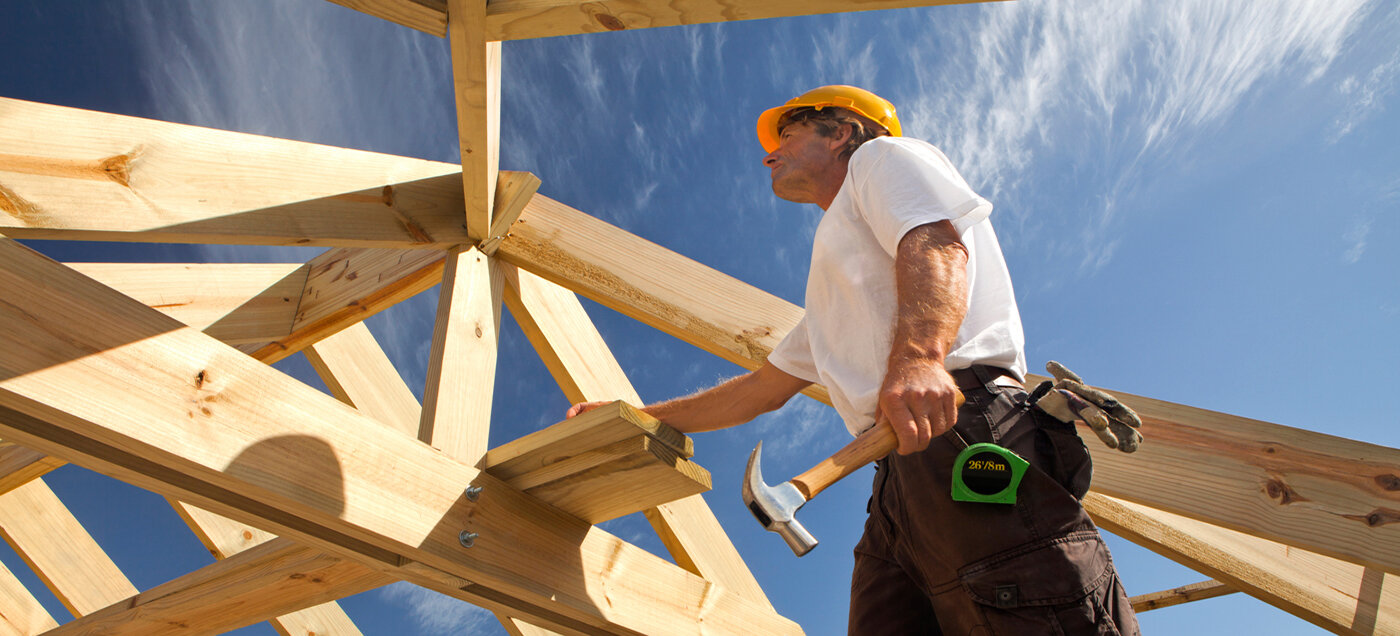Residential Real Estate News

Single Family Starts in U.S. Uptick in May
Residential News » Washington D.C. Edition | By Monsef Rachid | June 17, 2021 8:28 AM ET
According to the U.S. Department of Housing and Urban Development and the U.S. Census Bureau, overall housing starts increased 3.6 percent in May 2021 to a seasonally adjusted annual rate of 1.57 million units off of a downwardly revised April reading.
The May reading of 1.57 million starts is the number of housing units builders would begin if development kept this pace for the next 12 months. Within this overall number, single-family starts increased 4.2 percent to a 1.10 million seasonally adjusted annual rate. The multifamily sector, which includes apartment buildings and condos, increased 2.4 percent to a 474,000 pace.
"Single-family starts held firm in May as demand remains strong despite recent gains in new home costs," said Chuck Fowke, chairman of the National Association of Home Builders (NAHB). "However, single-family permits posted a decline as higher construction costs are deterring some residential construction activity. Policymakers need to help the industry's supply-chains in order to protect housing affordability."
"Single-family permits declined to the lowest pace since September 2020 as the home building market cools somewhat to adjust to higher prices and longer delivery times of building materials," said NAHB Chief Economist Robert Dietz. "The count of single-family homes permitted but not started construction is up 53 percent over the last year due to both gains for home construction since the onset of the 2020 virus crisis and the delay of some building projects due to higher costs for materials and labor."

NAR's Chief Economist Lawrence Yun also commented, "The trend since the onset of the pandemic has been notably higher single-family homebuilding and subdued multifamily construction. That tilt is a proper response, given the limited single-family home inventory and what had been a deceleration in apartment rent growth."
"Despite the month-to-month trend, or even year-to-year changes, America is facing a massive housing shortage due to multiple years of underproduction in relation to population growth. We estimate around 5.5 to 6.8 million additional housing units need to be built. America is on track for only 1.6 million and 1.7 million new housing units this year and next, respectively. That would represent the best two-year performance in 15 years, yet it would still be inadequate. Therefore, expect both rents and home prices to outpace overall consumer price inflation in the upcoming years", concluded Yun.
On a regional and year-to-date basis (January through May of 2021 compared to that same time frame a year ago), combined single-family and multifamily starts are 46.3 percent higher in the Northeast, 37.2 percent higher in the Midwest, 19.0 percent higher in the South and 26.4 percent higher in the West. These gains come off of depressed activity levels from last spring.
Overall permits decreased 3.0 percent to a 1.68 million unit annualized rate in May. Single-family permits decreased 1.6 percent to a 1.13 million unit rate. Multifamily permits decreased 5.8 percent to a 551,000 pace.
Looking at regional permit data on a year-to-date basis, permits are 43.2 percent higher in the Northeast, 36.2 percent higher in the Midwest, 29.9 percent higher in the South and 33.7 percent higher in the West.
The number of single-family homes permitted but not started construction continued to increase in May, rising to 142,000 units. This is 52.7 percent higher than a year ago.
Meanwhile, the number of single-family homes under construction is up 27.8 percent year-over-year, having increased to 652,000 homes. The number of apartments currently under construction is relatively flat at 672,000 units.
Sign Up Free | The WPJ Weekly Newsletter
Relevant real estate news.
Actionable market intelligence.
Right to your inbox every week.
Real Estate Listings Showcase
Related News Stories
Residential Real Estate Headlines
- U.S. New-Home Sales Surge in August as Mortgage Rates Ease
- Despite Increased Foreign Buyer Activity, Miami Residential Sales Dip 11 Percent in August
- California Home Sales Enjoy Modest Uptick as Mortgage Rates Ease
- U.S. Home-Flipping Profits Sink to Lowest Level Since 2008 Financial Crisis as Costs Climb
- Why the World's Rich Are Flocking to Europe in 2025
- Federal Reserve Delivers First Rate Cut of 2025 as Mortgage Relief Proves Limited
- Homebuilder Sentiment Holds Steady in U.S. as Rate-Cut Bets Lift Outlook
- U.S. Mortgage Rates Experience Sharpest Weekly Drop in Over a Year
- U.S. Foreclosures Rise for Sixth Straight Month as Affordability Pressures Mount
- Black U.S. Homeownership Rate Falls to Two-Year Low as Job Losses Mount
- Las Vegas Home Prices Flatten as Listings Surge, Sales Slow
- Cooling Miami Housing Market Sees 16 Percent Annual Sales Drop in July
- U.S. Mortgage Delinquencies Uptick in June Amid Regional Pressures
- California, Florida Top U.S. Housing Markets Most at Risk of Downturn
- 30-Year Mortgage Drops to 6.56 Percent in Late August, Lowest Since October 2024
- Investors Maintain Elevated Role in U.S. Housing Market Despite Slight Pullback
- Pending Home Sales Show Mixed Signals as U.S. Buyers Remain Cautious
- Canadian Home Sales Extend Recovery in July
- U.S. Home Sales Rise in July as Buyers Gain More Bargaining Power
- Zombie Foreclosures Edge Up Across U.S.
- 2.6 Million Homes at Wildfire Risk Across 14 Western States in 2025
- One in Five Americans Willing to Trade Personal Safety for Home Affordability
- U.S. Home Price Growth Slows as Affordability Pressures Mount in 2025
- U.S. Mortgage Rates Dip to Four Month Low in Early August
- U.S. Mortgage Applications Rise in Late July, Breaking Four-Week Slump
- Hong Kong's Housing Market Stuck in Stalemate as Bulls and Bears Face Off
- U.S. Condo Market Struggles in 2025
- U.S. Pending Home Sales Remain Sluggish in June
- Los Angeles Area Wildfires Destroyed Nearly $52 Billion in Homes Last January
- Greater Palm Beach Area Residential Sales Slip in June Amid Growing Inventory
- Economic Resilience Lifts U.S. Housing Outlook Going Forward
- New Home Sales Stagnate as Affordability Struggles Continue in America
- U.S. Housing Market Slips in June as Prices Hit New Highs
- Florida, California Continue to Reign Supreme as America's Ultraluxury Housing Markets
- Caribbean Housing Market Evolves into Global Second-Home Hotspot
- U.S. Home Sales See Highest June Cancellation Rate on Record
- Orlando Housing Market Cools in June as Listings Slide, Sales Slow
- Private Credit Surges in 2025 as Real Estate Developers Bypass Banks
- U.S. Condo Market Suffers Sharpest Price Drops in Over a Decade as Buyers Retreat
- Rising Taxes, Insurance Costs Undermine the Stability of U.S. Homeownership







